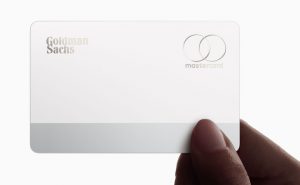The digital payments market is booming with demand increasing around the globe.
That has spurred a series of mergers and acquisitions among traditional payment companies and increasing valuations among the financial technology companies as a whole. It's shaking up the landscape as traditional financial companies partner, buy or invest in digital payment providers.
At the same time, some of the world’s largest technology companies are eyeing the market, aiming to capitalize on growing comfort levels with making payments via a smartphone.
One only needs to look toward Apple for evidence of the attention the payments market is getting from tech giants. In March it announced the Apple Card, a new credit card that will launch sometime this summer. Teaming up with Goldman Sachs, the Apple card will have no fees, and the interest rates the Cupertino, California iPhone maker said will be the lowest in the industry. Customers apply in seconds on their mobile phone and can use it instantly via Apple Pay.
Flurry of M&A in 2019
Before Apple burst onto the scene, the payments market was already undergoing a change. Mergers are becoming commonplace as the traditional players realize they need to consolidate to thrive. Fiserv, the payments processing company threw down the gauntlet, paying $22 billion in an all-stock deal for First Data in January. In March Fidelity National Information Services jumped into the fray inking a deal to acquire Worldpay for $35 billion in cash and stock. Global Payments and Total System Services merged in a $21.5 billion deal in late spring while PayPal acquired a stake in MercadoLibre to better compete against Amazon.
At the same time the payment processing players are engaging in M&A, the startups are raising venture funding, boosting their customer bases and stealing market share from the traditional players. That has sparked a series of deals between FinTech companies and traditional financial services companies, whether they are investing in them or purchasing them outright.
Visa and Mastercard are among the traditional players that don’t want to get left out. They are inking deals with FinTech companies to offer virtual credit cards and payment services to businesses and individuals around the globe. Take Bill.com as one example. In early April it raised $88 million in venture funding and announced a strategic partnership with Mastercard in which Bill.com will offer Mastercard virtual cards as part of its automated accounts payable service for small and midsize businesses. Bill.com now has a valuation of more than $1 billion.
Extend, the startup that helps companies manage business expenses, recently raised $11 million in venture funding. Its technology, which enables companies to instantly issue and control virtual cards integrates with Mastercard and Visa. It also counts a half a dozen traditional banks as partners.
Cryptocurrency Gaining Attention
The digital payments market goes beyond making contactless payments or issuing virtual credit cards. It also encompasses cryptocurrency with all sorts of financial companies eyeing the unregulated method of paying for things. FinTech companies have long enabled customers to trade in crypto and use it as a currency but it's only recently that the bigger players have entered the market.
Facebook is trying to legitimize cryptocurrency, recently releasing a white paper for Libra, the digital currency it's aiming to roll out next year. With it, consumers will be able to make purchases on its platform and engage in peer to peer payments directly from its mobile apps. If it takes off, it could put traditional money services at risk including Western Union.
























